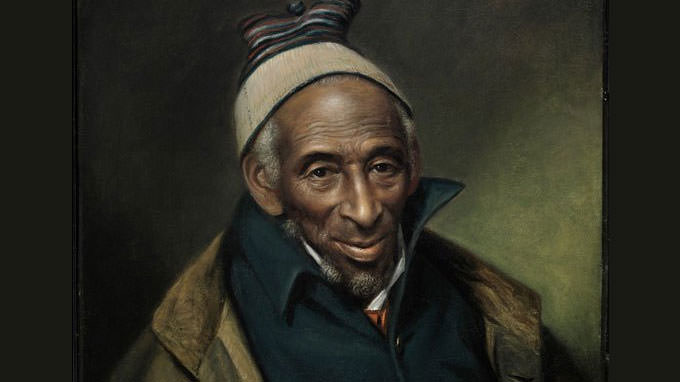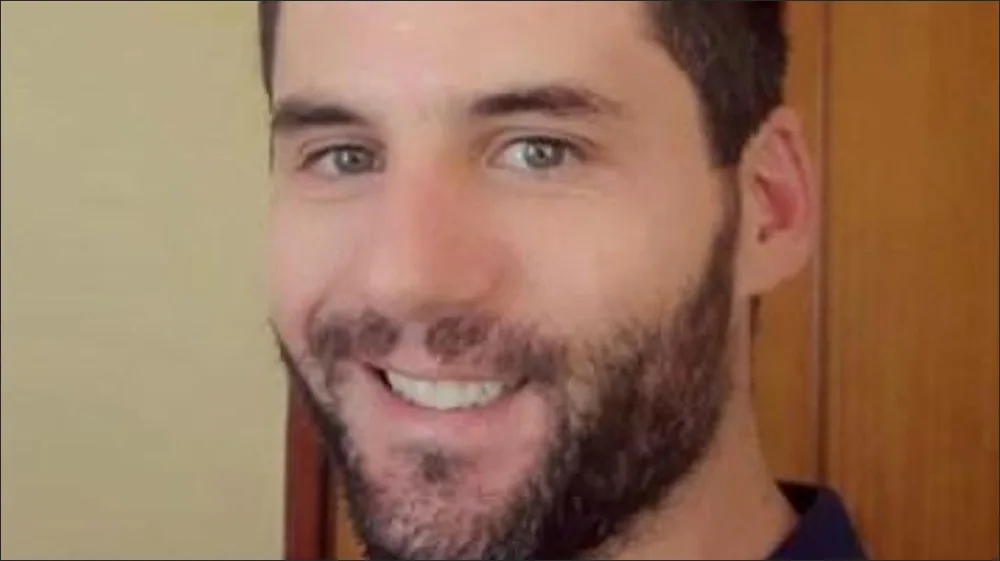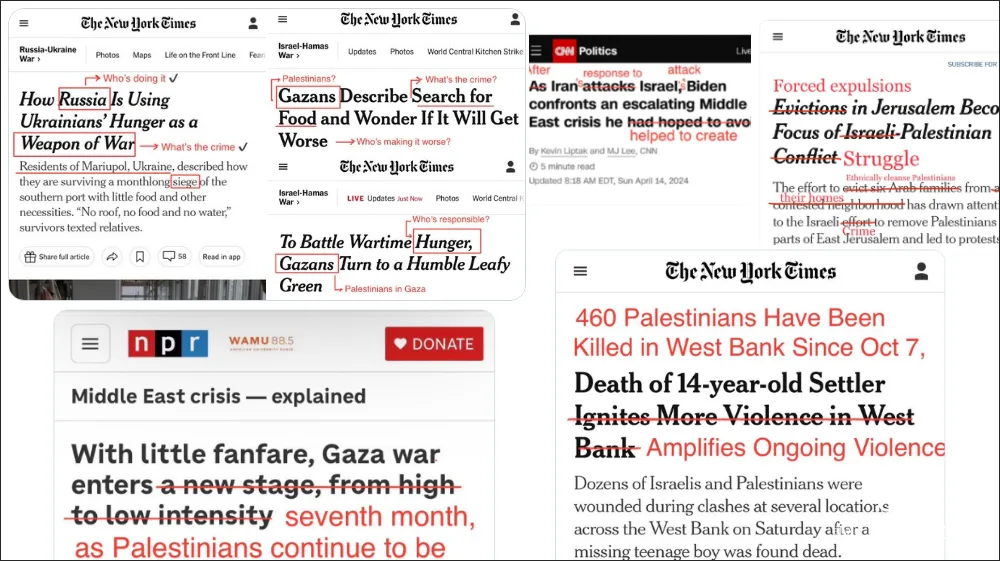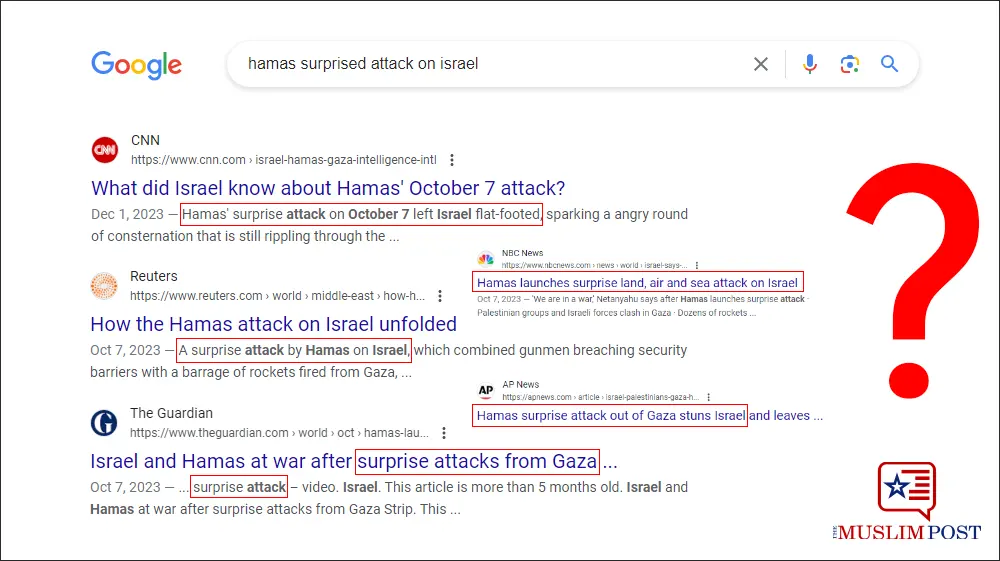They’ve been here since the birth of the nation …
Scholars estimate about a quarter to a third of the Africans brought to the United States as slaves were Muslims. Most were then forced to convert to Christianity.
American Muslims in the United States
6. When did Muslims come to America?
The history of American Muslims goes back more than 400 years. Although some evidence suggests that there were Muslims on Columbus’ ships, the first clearly documented arrival of Muslims in America occurred in the 17th century with the arrival of slaves from Africa. Scholars estimate that anywhere from a quarter to a third of the enslaved Africans brought to the United States were Muslims. Large numbers of Moriscos (former Muslims of Spain and Portugal) also came to the Spanish colonies, including many areas of what is today the United States. Although enslaved people were denied freedom of religion, many did practice their faith in secret and pass it on to their children. There are several autobiographies of Muslim slaves that survive from this period, including some by individuals who were involved in the Abolitionist movement and were Union soldiers during the Civil War.
The next significant wave of Muslim immigrants began in the mid-19th century. During the late 19th century until the 1920s, large numbers of Arabs, mostly from Lebanon and Greater Syria, arrived in the United States. Although the majority of these immigrants (almost 90%) were Arab Christians, there were sizable clusters of Muslims, most of whom settled in the Midwest. Mohammed Alexander Russell Webb, an early American convert to Islam, established a mosque and mission in New York City in 1893. The first mosque structure built in the United States for the purpose of serving a Muslim community was in Ross, North Dakota (1929) and the oldest surviving mosque is in Cedar Rapids, Iowa (1934).
African-Americans began to rediscover their African Islamic roots after the Great Migration of Blacks from the South to the Northern cities after World Wars I and II. The re-emergence of African-American Islam has been a consistent phenomenon during the twentieth century until the present. Today, African-American Muslims constitute roughly a third of the American Muslim population.
After passage of the Immigration and Nationality Act of 1965, greater numbers of Muslims began migrating to America along with many other immigrants with diverse backgrounds. The change in immigration laws allowed highly-skilled professionals to enter the U.S. Many Muslims who came during this time period were from the Middle East and South Asia (India, Pakistan and Bangladesh).
7. Who are American Muslims today?
America is home to one of the most diverse Muslim populations in the world, including people of almost every ethnicity, country and school of thought. Although they are widely viewed as recent immigrants, the demographics tell a different story. Approximately one third of the community is African-American, one third is of South Asian descent, one quarter is of Arab descent, and the rest are from all over the world, including a growing Latino Muslim population. While exact numbers are difficult to establish, there are between 3-6 million American Muslims. About one half of this population was born in the U.S., a percentage that continues to grow as immigration slows and younger individuals start having families.
Like others, most Muslims who choose to migrate to America arrive seeking economic opportunity and democratic freedom. The best studies available characterize American Muslims today as largely middle-class and an integral part of American society.1
American Muslims are present in all walks of life, as doctors and taxi drivers; lawyers and newspaper vendors; accountants, homemakers, academics, media personalities, athletes and entertainers.
Although American Muslims make up approximately one percent of the U.S. population, most Americans can name several famous American Muslims. Names like Muhammad Ali, Malcolm X, Mos Def, Fareed Zakaria, Shaquille O’Neal, Lupe Fiasco, Dr. Oz and Rima Fakih are part of our popular consciousness. Important business figures like Farooq Kathwari (CEO of Ethan Allen), Malik M. Hasan (a pioneer in the field of HMOs), and Safi Qureshey (a leader in PC component manufacturing) are all American Muslims.
Many American Muslims are also civically engaged, working with their neighbors to better their communities. Well-known American Muslim leaders include Rep. Keith Ellison (DFL-Minn.), the first American Muslim to be elected to the U.S. Congress; Rep. André Carson (D-Ind.); Mohammed Hameeduddin (Mayor, Teaneck, N.J.); and Amer Ahmad (Comptroller, Chicago).
The nation has honored many American Muslims for their service and sacrifice, including, for example, Salman Hamdani, a first responder on 9/11, and Kareem Rashad Sultan Khan, recipient of the Bronze Star and Purple Heart who died while serving in Operation Iraqi Freedom.
8. What is the role of mosques in American Muslim life?
Mosques dot the American landscape and, for observant Muslims, are central to devotional life. A major study of American Muslims in 2008 found that involvement with the mosque and increased religiosity increases civic engagement and support for American democratic values. According to the study, “mosques help Muslims integrate into U.S. society, and in fact have a very productive role in bridging the differences between Muslims and non-Muslims in the United States. This is a finding in social science that is consistent with decades of research on other religious groups such as Jews, Protestants and Catholics where church attendance and religiosity has been proven to result in higher civic engagement and support for core values of the American political system. Likewise, mosques are institutions that should be encouraged to function as centers of social and political integration in America.”2
9. How do American Muslims participate in American public life?
American Muslims take part in all aspects of American civic life. They are members of the Boy and Girls Scouts, Elks Lodges, Rotary Clubs, Kiwanis Clubs, and Veterans of Foreign Wars as well as members of school boards and volunteers in community centers.
American Muslims have created institutions of their own in the United States, just like other religious communities. There are many long-established groups, such as the Islamic Society of North America (ISNA), an umbrella organization of some 300 mosques and Islamic centers based in Indiana, and newer organizations like the Council for the Advancement of Muslim Professionals.
Many Islamic centers and institutions create programs serving both American Muslim communities and the wider public.
The University Muslim Medical Association, for example, is a free health care clinic in Los Angeles founded in 1992 by American Muslim college students at UCLA and Charles Drew University to serve a diverse inner-city community. The Inner City Muslim Action Network (IMAN) is a community-based non-profit formed in 1995 by American Muslim students, community residents and leaders to address inner city poverty and abandonment in the greater Chicago area. IMAN delivers a wide range of services, including a health clinic providing free health care and support services to the uninsured population on Chicago’s Southwest Side.
Many other American Muslim institutions are actively engaged in charitable giving, educational programs, interfaith outreach, health care, civic engagement, politics and the media. In short, American Muslims and the organizations they create are part of the fabric of American public life.
10. Is Islam a political movement?
No. Islam is a religious tradition, and adherents to Islam are called Muslim. Of course, American Muslims, like Americans from other religious groups, participate in American political life. American Muslim voting patterns generally mirror the broader American population. American Muslims are Republicans, Democrats, Libertarians, liberals and conservatives. There is no one political platform or agenda for those who practice the religion of Islam in the United States.
11. Have American Muslim leaders spoken out against extremist violence?
Yes. Many American Muslim leaders and organizations have repeatedly denounced extremist violence in the strongest possible terms.
Of the many statements and actions taken by American Muslims to condemn and counter terrorism, the fatwa (religious ruling) from the Fiqh Council of North America (an Islamic juristic body) captures the views of the vast majority of American Muslims:
“Islam strictly condemns religious extremism and the use of violence against innocent lives. There is no justification in Islam for extremism or terrorism.”
The Fiqh Council of North America’s statement affirms the following Islamic principles:
”[1] All acts of terrorism, including those targeting the life and property of civilians, whether perpetrated by suicidal or any other form of attacks, are haram (forbidden) in Islam.
[2] It is haram (forbidden) for a Muslim to cooperate with any individual or group that is involved in any act of terrorism or prohibited violence.
[3] It is the civic and religious duty of Muslims to undertake full measures to protect the lives of all civilians, and ensure the security and well-being of fellow citizens.”
A comprehensive collection of condemnations of terrorism and extremism by American Muslims, including theological arguments, may be found on The American Muslim, a publication that has been providing information about the American Muslim community since 1998. www.theamericanmuslim.org
12. Are American Muslims concerned about extremist violence in the United States?
Yes. Most American Muslims, like most other Americans, are deeply concerned about the problem of extremist violence committed in the name of Islam. According to the most reliable data we have, the overwhelming majority of American Muslims is well integrated into American society and reports criminal activity. Over the past decade, 40% of domestic terrorism plots have been uncovered or deterred with assistance from American Muslims.3
13. Do American Muslim leaders support freedom of expression and religious liberty?
Yes. Many American Muslim leaders, educational institutions and advocacy groups have repeatedly spoken out for freedom of expression and are actively involved in promoting religious liberty for all people both in the United States and abroad.
A recent statement signed by some 200 American and Canadian Muslim leaders unconditionally condemned “any intimidation or threats of violence directed against any individual or group exercising the rights of freedom of religion and speech; even when that speech may be perceived as hurtful or reprehensible.”
The statement directly addresses recent controversies in the United States:
“We are concerned and saddened by the recent wave of vitriolic anti-Muslim and anti-Islamic sentiment that is being expressed across our nation. We are even more concerned and saddened by threats that have been made against individual writers, cartoonists, and others by a minority of Muslims. We see these as a greater offense against Islam than any cartoon, Qur’an burning, or other speech could ever be deemed.”4
_____________________________________________________________________
1 The Pew Forum on Religion and Public Life has undertaken two major studies of American Muslims in 2007 and 2011. See the following for a summary of these studies: http://www.people-press.org/2011/08/30/muslim-americans-no-signs-of-growth-in-alienation-or-support-for-extremism/
2 The full study may be found at www.muslimamericansurvey.org
3 For a series of studies on extremist violence and the role of the American Muslim community in addressing the problem, see the publications of the Triangle Center on Terrorism and Homeland Security (http://sanford.duke.edu/centers/tcths/). The Gallup study of American Muslims may be found at http://www.gallup.com/strategicconsulting/153611/REPORT-Muslim-Americans-Faith-Freedom-Future.aspx
4 The full text of “A Defense of Free Speech by Canadian and American Muslims” may be found at www.theamericanmuslim.org
Editor’s note: This publication, jointly produced by the Religious Freedom Education Project of the First Amendment Center and the Interfaith Alliance Islamic Understanding, is republished here with permission.







